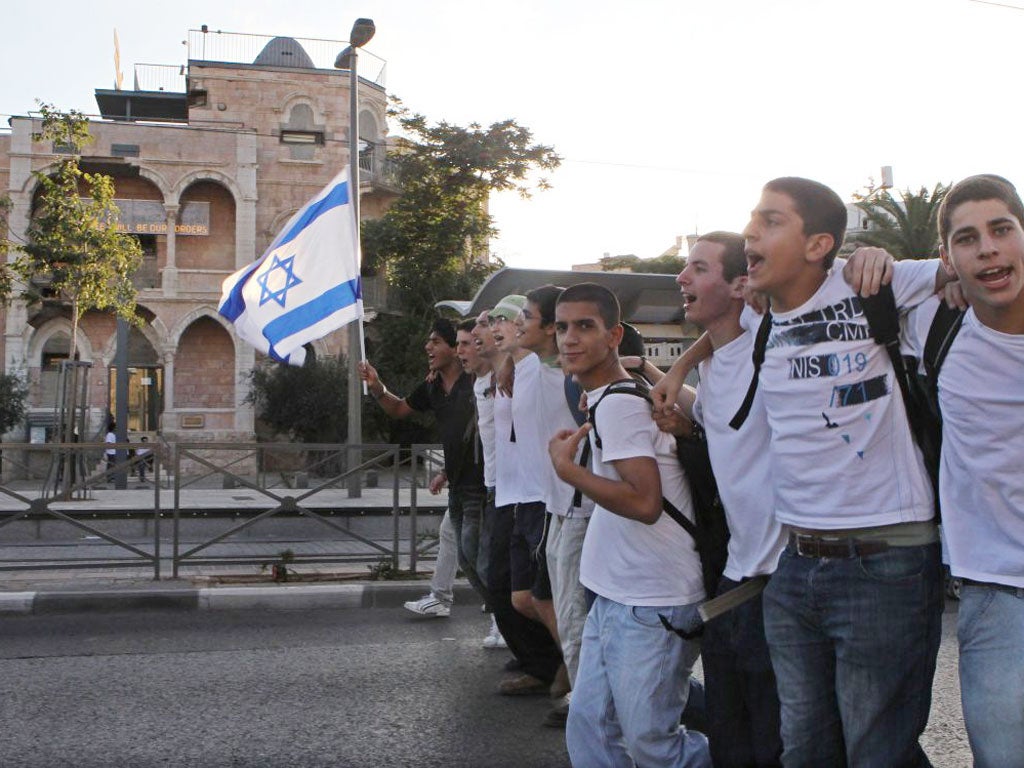Robert Fisk: Old divisions die hard amid the bleeding stones of Jerusalem


Your support helps us to tell the story
From reproductive rights to climate change to Big Tech, The Independent is on the ground when the story is developing. Whether it's investigating the financials of Elon Musk's pro-Trump PAC or producing our latest documentary, 'The A Word', which shines a light on the American women fighting for reproductive rights, we know how important it is to parse out the facts from the messaging.
At such a critical moment in US history, we need reporters on the ground. Your donation allows us to keep sending journalists to speak to both sides of the story.
The Independent is trusted by Americans across the entire political spectrum. And unlike many other quality news outlets, we choose not to lock Americans out of our reporting and analysis with paywalls. We believe quality journalism should be available to everyone, paid for by those who can afford it.
Your support makes all the difference.They wear their wounds well, the buildings of the old Green Line. Forget the new Jerusalem hotels across the road, the state-of-the-art tramway that glistens down the highway; just take a look at the bullet holes on the walls to the left, the shell gashes in the preserved façade of what was once an Israeli army bunker and is now Raphie Etgar's little art gallery.
You can still peer between the rusting iron shutters, across the road. A hundred metres away was the Arab Legion. Just 300ft from here was the Jordanian frontier.
For this is the 1967 "border" to which Mahmoud Abbas insists the Israelis must retreat, the "frontier" which Bibi Netanyahu regards as too "vulnerable" to return to in any peace treaty. Allow an Arab army back to the land over the road and Jerusalem is again divided, no longer the "united and eternal capital" of Israel. Allow the Israelis to maintain their illegal annexation of this same land and East Jerusalem can never be the "capital" of Palestine.
Perched on the roof of the Museum of the Seam – "seam" is a kind of substitute word for the "border" which Israel will not acknowledge, rather like "settlement" is a necessary substitute for "colony" – is its art director and chief curator Raphie Etgar. He was a former tank commander, fought in two wars – in 1967 in Sinai, in 1973 in Golan – and in the bloody battle of Karameh and "saw death very close to my eyes and lost quite a few of my friends".
So would Etgar allow the Palestinians to have a capital in east Jerusalem, Israel's in the west of the city? There is no hesitation. "If I was in charge," he suddenly says, "I would not share Jerusalem – I would not. I think the Palestinians are touching a very, very sensitive point here.
"They should get 'Palestine' as a country, as a place for living. Give them the West Bank – but remember a few things that are also very sensitive and basic and meaningful to the Jewish nation. They should recognise the Jewish identity of this land [Israel]. I don't think they would do less well if they ran the whole business from Ramallah."
Etgar talks about sharing "a sense of human rights" but Jerusalem has too many "bleeding stones". The Palestinians and Arabs might have to accept a Muslim-Arab "quarter" in east Jerusalem. It might once have been a good idea to go back to the Green Line, Raphie Etgar said. "But things were changed by time."
I climb to the watchtower on the roof where I can see the Mount of Olives. I tried to close the old iron shutters on the stairwell. But they had been congealed into the wall in the years since 1967.
Join our commenting forum
Join thought-provoking conversations, follow other Independent readers and see their replies
Comments